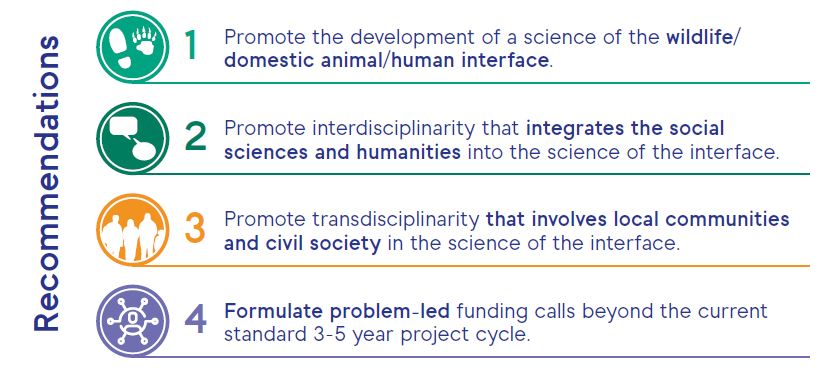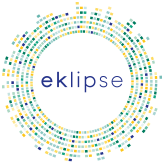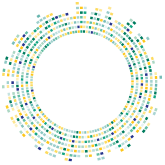Request > Biodiversity and pandemics
Building on existing relevant work on research agendas and knowledge gap analysis, identifying interdisciplinary research and action priorities, that contribute to a strategic research agenda on biodiversity and pandemics addressing the critical interlinkages between relevant sectors needed to make future actions more effective.
Summary
Type of request: Knowledge Synthesis
This request was identified from a workshop co-organised by Eklipse and the EC- Knowledge Centre for Biodiversity (EC-KCBD) that brought representatives from a range of European Commission services together with high-level scientists to identify challenges and evidence needs related to the links between Biodiversity and human health, including zoonotic and infectious diseases. This request aims to support the development of a strategic research agenda on biodiversity and pandemics, jointly with relevant agencies and initiatives, and aligned with relevant sectoral policy agendas.
Expert Working Group
- Julie Teresa Shapiro (Ben-Gurion University of the Negev, Israel), Co-chair
- Adam Izdebski (Max Planck Institute for Geoanthropology, Germany), Co-chair
- Norbert Tchouaffe Tchiadje (Pan-African Institute for Development, African Academy of sciences and University of Dschang, Cameroon), Deputy
- Alexandre Caron ( CIRAD, France)
- Andrew Cunningham (Zoological Society of London, England)
- Miguel Fernandez (German Center for Integrative Biodiversity Research, Germany)
- Soushieta Jagadesh (ETH Zürich, Switzerland)
- Claire Lajaunie (Inserm, France)
- Hatice Mahur Turan (TUBITAK – The Scientific and Technological Research Council of Turkey)
Methods Expert Group (MEG)
- Nils Bunnefeld (University of Stirling, UK)
- Alister Scott (University of Northumbria, UK)
Knowledge Coordination Body (KCB) focal points:
- Serge Morand (CNRS – CIRAD – Faculty of Veterinary Technology, Kasetsart University, Bangkok)
- Carla Washbourne (University College London, UK)
- Ana Lillebo (University of Aveiro (CESAM), Portugal)
- Ute Jacob (Helmholtz Institute for Functional Marine Biodiversity, University of Oldenburg (HIFMB, Germany)
Eklipse Management Body (EMB) contact points
- Candice Pouget (Helmholtz Centre for Environmental research (UFZ), Germany)
- Karla E. Locher (Helmholtz Centre for Environmental research (UFZ), Germany)
- Marie Vandewalle (Helmholtz Centre for Environmental research (UFZ), Germany)
Outputs
- Report – Online Workshop:Biodiversity in post-covid cross-sectoral challenges – May 31st 2021 (see below)
- Podcast – episode about Biodiversity and pandemics – February 2022 (see below)
- Report – Online Focus group “Biodiversity and pandemics”- April 28th 2022 (see below)
- Document of Work (DoW) – June 2022 (see below)
- Methods protocol (reviewed version) – November 2022
- Review of the methods protocol (comments from reviewers and responses from the EWG) – November 2022
- Draft evidence report – June 2023
- Review of the methods protocol (comments from reviewers) – September 2023
Final evidence report
- Final knowledge synthesis report – November 2023 – NEW REPORT OUT –
This report was prepared by an Eklipse Expert Working Group (EWG) active from 2022 to 2023. The group undertook a scoping review of scientific literature and collected input from a large body of external experts through an online survey and focus group discussions. Using these results, the EWG formulated recommendations for shaping a strategic research agenda on biodiversity and pandemics.
These recommendations (see below) address the critical interlinkages between relevant sectors and stakeholders via targeted transdisciplinary research to make future actions more effective. In the following recommendations, the EWG calls for moving beyond incremental changes to science policy and bringing about transformative change to how research is carried out, organised, and financed.

From the report, one of the key challenges identified is the need to unravel the relationship between biodiversity and pandemics by understanding spillover events between wild animals and species of interest. These spillover events occur at wildlife / domestic animal / human (W/D/H) interfaces. These interfaces are critical and challenging fields of investigation, dynamic, constantly evolving and adapting to the changing local contexts impacted by global and local drivers. Considering an interdisciplinary approach to understanding these interfaces is critical since they lie at the meeting point between natural and social sciences studies. Furthermore, the essential involvement of the local human populations was highlighted as key in order to formulate truly transformative pandemic-prevention and preparedness policies.

The COVID crisis has revealed how fragile and vulnerable our societies are to pandemics and how hectic political and policy responses become when faced with such an emergency. The pandemic did not come as a surprise to the scientific community, who has long identified the potential risk of zoonoses linked to unprecedented land degradation, unleashed consumption of natural resources and acceleration of biodiversity loss. This pandemic revealed the science-policy challenges to address before a new crisis emerges. Scientists are pulling knowledge together, but these initiatives need to ensure policy relevance and appropriate uptake of knowledge to be effective.
To support the identification of knowledge needs related to managing the links between biodiversity and human health, including zoonotic and infectious diseases, Eklipse organised together with the EC- Knowledge Center for Biodiversity. This workshop brought together invited participants, including representatives from a range of European Commission services, together with key experts (Please consult the workshop´s report above). A main request was identified from the workshop, highlighting the need to develop a strategic research agenda on Biodiversity and pandemics, jointly with all relevant agencies, and aligned with relevant sectoral policy agendas.

To move forward with this request and as a next step, Eklipse started a scoping process to explore and gather all relevant knowledge and knowledge holders to avoid duplication of ongoing efforts and ensure the outputs are jointly and timely developed.
Policy relevance and timeliness of the request
The scientific community has long identified the potential risk of zoonoses linked to unprecedented land degradation, unleashed consumption of natural resources and acceleration of biodiversity loss. However, the actual emergence of COVID-19 has highlighted gaps in our knowledge and our ability to put this knowledge into practice through policy-making. Therefore, generating and synthesising knowledge to fill these gaps while also ensuring the uptake of knowledge into decision-making and implementation should become a high priority.
The request Biodiversity and Pandemics focuses on how to improve our understanding and application of the science of pandemics to optimise coordination and coherence across policy sectors, building better resilience and response strategies (proactive and reactive approaches) in the context of the interface between Biodiversity and Pandemics. Moreover, the creation of a cross-sectoral consortium of requesters working with the European Commission’s Directorate-General for Research and Innovation (EC-DG RTD), co-developing the knowledge needs and expecting the knowledge synthesis will ensure that the produced evidence will be jointly and timely taken up by policy.
Also, as a follow-up to the workshop in May 2021 and based on the discussion and the identified policy needs, EC-DG RTD requested Eklipse to contribute to the drafting of the topic “Prevention of zoonotic emerging diseases & biodiversity” for the next Horizon Europe work programme 2023-2024. Eklipse Scoping Group on “Biodiversity and Pandemics” and four out of the nine relevant experts contacted by Eklipse provided their contributions to the document.
More information about the Eklipse criteria for processing a request can be found in the Document of Work (DoW) above.
Timeline
- Start of the process: 02/2021
- End of Call for Knowledge (CfK): 10/12/2021
- End of the Call for experts (CfE n°11/2022): 22/06/22
- Call for review of the Methods protocol draft: 26/09/22 – 24/10/22
- Final version of the Methods protocol: 03/11/22
- Call for review of the evidence report draft: 30/06/23 – 21/07/23
Scoping phase
The scoping phase is the second step within the Eklipse process. It aims to refine the question, identify how Eklipse could provide an added value by being involved, seek knowledge and expertise on the refined question via an open Call for Knowledge (CfK), and provide suggestions regarding methods and resources needed to answer the request. For more precision, please consult Table 2 on the DoW above.
During the scoping phase, diverse activities were developed in order to identify the specific topics and their policy relevance. First, a workshop on “Biodiversity in post–covid cross–sectoral challenges” was organised by Eklipse together with the EC Knowledge Centre for Biodiversity (KCBD). The workshop aimed to explore these needs related to biodiversity and pandemics and to answer the questions:
- How could we better address the drivers of such pandemics?
- How can we also better prepare in case this happens again?
- What knowledge and evidence do we need to support EU policies, rendering them coherent and effective across sectors to best tackle the interlinkages between biodiversity, human health and our economies?
The workshop objectives were to 1) clarify the interlinkages between different sectors, biodiversity and health, 2) explore how cross–sectoral approaches/actions can help prevent pandemics (root causes) and be better prepared
when they occur, 3) identify knowledge needs to support these cross–sectoral approaches/actions.
From the workshop, three potential requests were identified:
1. Develop a strategic research agenda on biodiversity and pandemics jointly with all relevant agencies and aligned with relevant sectoral policy agendas.
2. Better understanding of EU policies generally in the emergence and spread of Emerging Infectious Diseases (EID) in third countries.
3. Identification and prioritisation of monitored ecosystems/biodiversity/areas or methodologies to improve the surveillance systems for the prevention of zoonotic emerging diseases in order to render them more resilient and sustainable inspired by past/best initiatives (EFSA, PREZODE, HERA, OHHLEP).
After that, a Call for Knowledge (CfK) was released to identify research gaps and policy needs. From the CfK, a total of 11 responses were collected with a wide variety of material, e.g. reports, scientific and grey literature, information about projects, as well as expert knowledge.
The Document of Work (DoW) was finalised and described the results of the scoping activities and the background of the request and is the basis for the call for experts.
Answering the request
Selection of an Expert Working Group
To answer this request, Eklipse sent out a Call for Expertise (CfE) and received 21 applications, from which 15 experts were selected in June 2022. These experts covered a broad range of expertise, gender and geographical (18 countries) representation to form the Eklipse Expert Working Group (EWG). One expert dropped out in the beginning due to unavailability.
Methods Protocol
The EWG has first developed a methodological protocol draft based on the DoW, describing the current knowledge gaps and research needs on the topic, and proposes the best methods of knowledge synthesis to address this request. The methods protocol was open for public review until the 24th of October, 2022.
From the consultation process, six reviews were received. The EWG went through the reviewers´comments and advices , in order to decide if they should be integrated to the final version of the methods protocol or if it was not in the scope of the request. Both the final version of the methods protocol and the review of the methods protocol can be downloaded (see all the final outputs in the section above).

Answering phase
The EWG answered the request by applying a combination of methodologies proposed in the methods protocol (see graphic one above). The methods below were conducted in parallel, with an effective delayed start of the third method to consider the results of the scoping review when formulating the questions in the online questionnaire. The use of various approaches and multiple data sources provides a more comprehensive approach to answering the request than a single method.
- Literature-based method: scoping review: The scoping review aimed to provide an informed overview of the quantity and quality of research evidence on biodiversity and the risk of pandemics. The structured and robust review also provided a summary of what that evidence indicates, exploring positive and negative impacts and helping to formulate recommendations on strengths and gaps. This method was conducted as follows:
The first phase was a structured search of the peer-reviewed articles and reports from organisational websites as well as grey literature to summarise the current state of knowledge and to identify potential contested evidence which might indicate knowledge gaps with the need for further investigation.
The second phase consisted of a synthesis of the selected evidence and summarising the existing state of knowledge and gaps in evidence to contribute to the questionnaire and, more crucially, the design and focus of the survey and focus groups for the People-based methods. Finally, we visualised the results of the scoping review using evidence mapping methods to report the knowledge gaps and areas in need of further investigation.
- Initiative scoping: We focused on sources and mechanisms of funding rather than on individual projects in order to provide an overview of current funding schemes and initiatives (key characteristics of these programmes, amount of funding, duration of the project, geographic location(s)).
- People-based methods (online survey-based expert consultation and and focus groups: The EWG decided to implement an online survey and a focus group discussion.
Online survey: Based on these two lists from the data synthesized in the literature-based method (see above), the survey was sent to a selected number of experts (n=301). The outputs of this online survey were two consolidated and ranked lists, one each of research knowledge gaps and policy recommendations, which were used for the focus group discussion.
Focus group discussion: The objectives of the focus group discussion were to further validate, consolidate and prioritise the lists of research knowledge gaps and policy recommendations by key experts. The focus group discussion was structured in five sessions, and its objective was to gather between 8 and 12 experts as requested by the methodology and facilitator.
If you want to have more precision on the different methods and the results gathered by the EWG, please read their Methodological framework (p.24 – 34) in their final knowledge synthesis evidence report.
Finalisation
The draft report developed by the expert working group to explore the topic of “Biodiversity and pandemics: Interdisciplinary research and action priorities” was released for external review in Summer 2023. From the consultation process, 13 reviews were received. The EWG has integrated the comments from this process, and the final evidence report is publicly available on our website.



